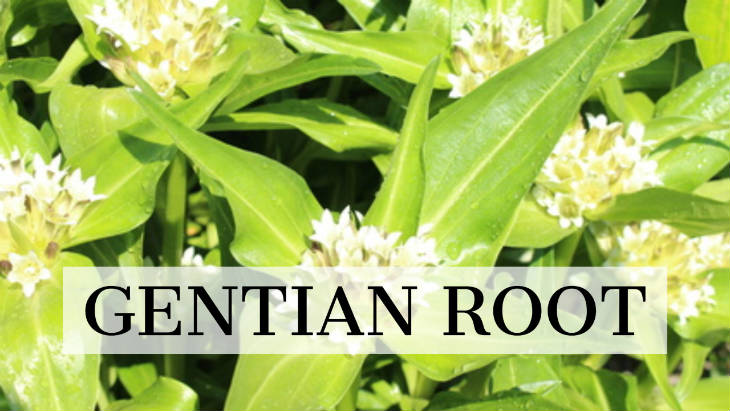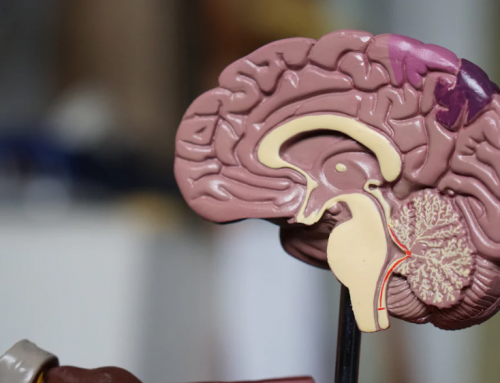Gentian root holds a significant place in traditional medicine across many cultures. You find it in herbal teas, tinctures, and infusions, all aiding digestion. This remarkable root has been used to cure wounds and treat various health conditions. At the heart of its healing power lies Gentiopicroside, a key component known for its antiseptic and antispasmodic properties. This compound supports liver health and aids in treating digestive issues. As you explore gentian root’s legacy, you uncover a rich history of natural healing that continues to benefit modern wellness practices.
Historical and Cultural Significance
Ancient Uses and Traditions
Early medicinal applications in various cultures
You find gentian root deeply rooted in ancient healing practices. Traditional medicine systems like Ayurveda and Traditional Chinese Medicine (TCM) have long recognized its potent medicinal properties. Ancient healers used gentian root to treat a wide range of ailments. Its bitter taste made it a popular choice for digestive issues. In Europe, herbalists have relied on gentian root for centuries as a digestive aid. They valued its ability to stimulate appetite and improve digestion. The roots of Gentiana lutea, rich in bitter glucosides, were historically used to treat digestive and dyspeptic disorders. This tradition highlights the root’s enduring role in supporting digestive health.
Symbolism and cultural beliefs surrounding gentian root
Gentian root carries symbolic significance in various cultures. Its strong bitter flavor symbolizes strength and resilience. Many cultures associate it with purification and detoxification. As a liver tonic, gentian root supports detoxification processes. This association with cleansing and renewal has made it a revered plant in traditional medicine. You might find it interesting that some cultures view gentian root as a symbol of healing and protection. Its use in rituals and ceremonies underscores its cultural importance. These beliefs have contributed to its lasting legacy in healing traditions.
Evolution Through the Ages
Transition from traditional to modern uses
Over time, gentian root has transitioned from traditional to modern uses. While ancient healers used it primarily for digestive issues, modern applications have expanded. Today, you see gentian root in various forms, such as teas, tinctures, and supplements. Its role as a digestive aid remains, but it also supports liver health and detoxification. Modern herbalists continue to value its antiseptic and antispasmodic properties. This evolution reflects the adaptability of gentian root in meeting contemporary wellness needs.
Influence on herbal medicine practices
Gentian root has significantly influenced herbal medicine practices. Its use as a bitter herb has shaped the development of digestive tonics. Herbalists have incorporated gentian root into formulations to enhance appetite and improve digestion. This influence extends to the creation of bitters, which stimulate digestive functions. You might notice that gentian root’s impact on herbal medicine practices continues to grow. Its integration into modern wellness routines highlights its enduring relevance. As you explore gentian root’s legacy, you uncover a rich history of natural healing that continues to benefit modern wellness practices.
Personal Stories of Healing
Anecdotes from Healers and Practitioners
Stories of successful treatments using gentian root
You might find it fascinating how gentian root has played a pivotal role in various healing stories. One anonymous customer shared their experience with Nature’s Answer tincture, highlighting its effectiveness in soothing an upset stomach and aiding digestion. They recommended it for anyone needing digestive support. Another practitioner emphasized gentian’s ability to awaken and strengthen the gut, both emotionally and physically. This makes it an excellent choice for addressing digestive issues when needed. The root’s therapeutic virtues extend to improving digestion and treating dyspeptic disorders, as noted by another user who praised its ability to stimulate appetite.
“Gentian root was believed to stimulate bile production, aiding in the breakdown of fats and promoting liver detoxification,” shared an herbalist. This historical use underscores its enduring reputation as a natural elixir for digestive health.
Personal experiences and testimonials
Personal testimonials further illustrate gentian root’s impact. Many individuals have found relief from symptoms like indigestion, bloating, and heartburn. Its role in stimulating digestive function, increasing saliva, and digestive juices in the stomach has been well-documented. Users have also noted its ability to alleviate fever and prevent muscle spasms. These personal accounts highlight gentian root’s versatility and effectiveness in addressing a wide range of digestive disorders.
Community and Family Traditions
Generational knowledge and practices
In many families, the use of gentian root has been passed down through generations. You might discover that this generational knowledge often includes traditional remedies for digestive issues. Families have relied on gentian root to stimulate appetite and improve digestion, incorporating it into their daily routines. This practice reflects a deep-rooted belief in the plant’s healing properties and its ability to support overall well-being.
The role of gentian root in family remedies
Gentian root often plays a central role in family remedies. Its use as a digestive aid has been a staple in many households. Families have used it to address common ailments such as loss of appetite, bloating, and acid reflux. The root’s ability to stimulate bile production and assist with the assimilation of dietary fats has made it a valuable addition to home remedies. This tradition of using gentian root underscores its importance in maintaining digestive health and supporting family wellness.
Scientific Basis and Modern Integration
Understanding the Efficacy
Scientific studies supporting its medicinal properties
You might wonder how gentian root works its magic. Scientific studies have explored its medicinal properties, focusing on its impact on digestive health. Researchers have found that gentian root can improve various aspects of digestion. Its traditional use as a digestive aid has been supported by modern research. The root’s bitter compounds stimulate digestive juices, enhancing your body’s ability to break down food. This makes it a valuable ally in maintaining digestive health.
Active compounds and their effects, including Gentiopicroside
The secret behind gentian root’s effectiveness lies in its active compounds. Among these, Gentiopicroside stands out as a key player. This compound contributes to the root’s antiseptic and antispasmodic properties. Gentiopicroside supports liver health and aids in treating digestive issues. It also plays a role in managing fever and preventing muscle spasms. The presence of iridoids and flavonoids further enhances gentian root’s benefits. These compounds work together to provide a holistic approach to wellness.
Bridging Traditional and Modern Medicine
Current medical applications and research
In today’s world, you see gentian root bridging the gap between traditional and modern medicine. Its applications have expanded beyond digestive health. Researchers continue to explore its potential in various medical fields. Gentiopicroside remains a focal point in these studies. Its antiseptic properties make it a candidate for treating infections. The compound’s ability to support liver function has sparked interest in its use for liver-related conditions. Ongoing research aims to uncover more about gentian root’s therapeutic potential.
Complementary use with modern treatments
Gentian root complements modern treatments, offering a natural alternative for those seeking holistic care. You might find it used alongside conventional therapies to enhance their effectiveness. Its role as a digestive aid makes it a popular choice for those undergoing treatments that affect digestion. Gentiopicroside’s versatility allows it to support various health needs. By integrating gentian root into your wellness routine, you can benefit from both traditional wisdom and modern science.
Gentian root has carved a niche in traditional medicine, celebrated for its digestive benefits and therapeutic virtues. Its historical journey from ancient remedies to modern applications underscores its enduring relevance. Personal stories of healing highlight its impact on individuals and communities, reinforcing its role in wellness practices. Today, gentian root bridges the gap between traditional and contemporary medicine, offering potential in treating various health issues. As you explore its legacy, you find a plant that continues to inspire and heal, promising future applications in holistic health.
Send Inquiry
References:
1.Gentian Root’s Therapeutic Use-Gentian Root’s Therapeutic Use.
2.Iridoids and Flavonoids from Gentian Root-The iridoids and flavonoids from gentian root may contribute to its benefits.
3.Gentian Root’s Effects on Digestive Health-Gentian root has traditionally been used to improve a number of facets of digestive health.





